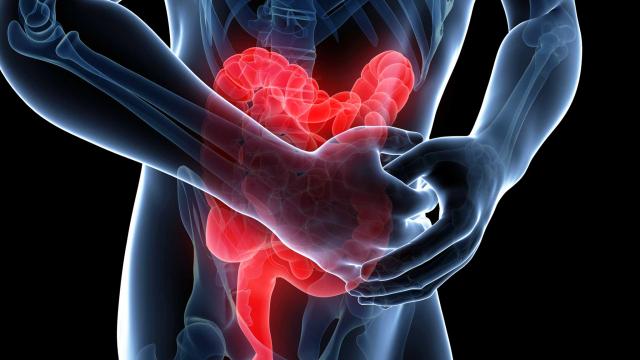
If you’re suffering through stomach pains and digestive problems every day, you are not alone. Thousands of people live with digestive problems in the United States, and few feel comfortable enough to tell their doctors. Despite the discomfort, you should seek help in diagnosing the underlying cause. You could be suffering from celiac disease.
The Basics
Celiac disease is an immune system’s reaction to gluten, a protein often found in wheat and bread. Because a celiac patient’s immune system reacts to any gluten in the small intestine, the reaction damages the intestine over time.
As the intestine becomes more and more damaged, the body can no longer absorb nutrients properly, leading to malabsorption and malnutrition. Many times, people diagnosed with celiac disease have anemia, vitamin deficiencies, fatigue, and weight loss.
Although researchers are still looking into potential causes, a new study is giving fresh insight into the disease. The study found that the usually harmless reovirus can trigger an immune response to gluten.
Normally, the reovirus presents as an upper respiratory or gastrointestinal infection, but doctors do not associate it with severe disease. In this study, however, researchers found that celiac patients had high levels of reovirus antibodies in their blood.
Once infected, researchers believe that the virus leads to a more severe immune response later on. In the future, researchers hope that those at-risk for celiac disease will be able to use a vaccine to ward it off.
Diagnosing Celiac Disease
Diagnosing celiac disease can prove tricky. The symptoms include bloating, general stomach pain, diarrhea or constipation, fatigue, and anemia. However, many of the symptoms characterize irritable bowel syndrome, Crohn’s disease, or a simple gluten intolerance as well.
To diagnose celiac disease, your doctor will need to look at your family and medical history first. He may need to conduct a short physical exam, looking for distension, irregular sounds, and stomach pain. If the doctor suspects celiac disease, he will usually order a series of blood tests that search for certain antibodies.
Even still, the most accurate way of confirming a positive blood test will be through an intestinal biopsy called an endoscopy. Through the biopsy, the doctor can see if you have any damage to the intestinal wall and confirm celiac disease once and for all.
Lifestyle Change
Currently, doctors do not have any medication or special treatment that can combat celiac disease. Instead, you simply have to make lifestyle changes. You must heal the damage in your small intestine by avoiding gluten at all costs.
At first, you may feel overwhelmed with the change. You will have to learn which foods to avoid and what hidden ingredients to watch for in certain foods.
No matter what you do, however, you have to stay away from gluten. Since gluten is a protein, you can easily contaminate a food item with it. While friends and family may enjoy cooking for you, you should watch how they prepare the food carefully and explain your needs to them thoroughly.
Celiac disease is not a self-imposed diet fad. It is an autoimmune disorder. The smallest hint of gluten will cause another immune reaction that will undo the healing of your small intestine.
Fortunately, many food companies are producing gluten-free products that can ease the transition for you and your food-loving friends. You can still enjoy the gluten-free versions of your favorite dishes too, including pasta and bread.
If you’re experiencing stomach pain and discomfort on a regular basis, look into your symptoms further. Your doctor can rule out some potential causes and pinpoint the root problem. If the doctor diagnoses you with celiac disease, you can start the healing process right away and enjoy freedom from any crippling stomach pain.
